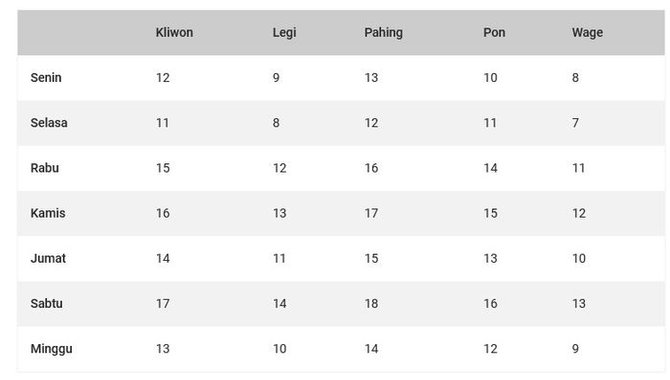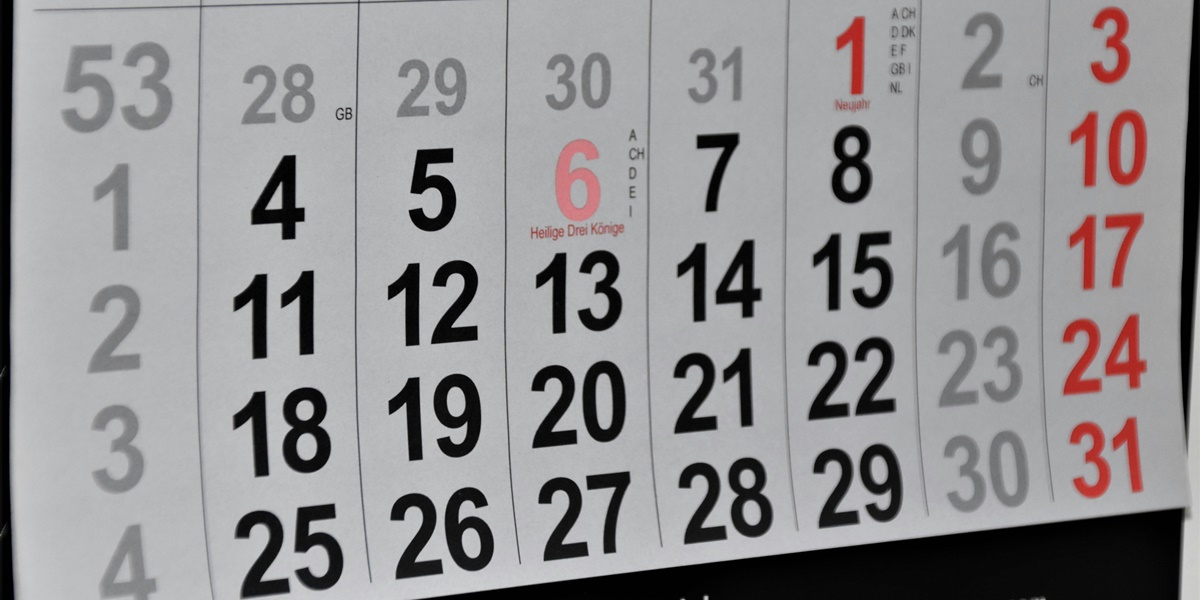Kapanlagi.com - Javanese people strongly believe in the existence of good and bad days that affect various aspects of life. According to Javanese beliefs, good and bad days can be determined using special methods, both according to Islamic teachings and Javanese primbon. In daily life, Javanese people often consider the goodness or badness of a day before engaging in important activities
Good days according to Javanese beliefs are considered the most suitable time to perform various activities, such as weddings, traditional ceremonies, or starting a new business. On the other hand, bad days are considered unfavorable for engaging in important activities because they are believed to bring less fortunate fate or luck.
So, how to determine good and bad days according to Islam and Javanese primbon? To find out, just read the following review.
1. Good and Bad Days for Javanese People

Good and Bad Days for Javanese People (credit: unsplash)
Good and bad days for Javanese people are a concept that has been passed down through generations. According to Javanese beliefs, each day in the calendar has different energies or powers. Good days are believed to have positive energy, while bad days are days with negative energy.
Good days are believed to have a positive influence on success and luck in various activities. For example, if they want to celebrate a wedding, Javanese people will look for a good day to hold the event in the hope of having a harmonious and happy married life. The same goes for traditional ceremonies, where choosing a good day is expected to yield maximum results and bring luck to the family or community.
On the other hand, bad days are considered unfavorable times to engage in important activities such as weddings, moving houses, or starting a business. Javanese people believe that on bad days, there is a possibility of disturbances or problems, and the results may not meet expectations. Therefore, bad days are avoided to prevent misfortune or loss.
By understanding good and bad days, Javanese people hope to maximize their chances of success and avoid unfavorable outcomes. Determining auspicious and inauspicious days also helps in planning traditional activities or customs that are important to Javanese culture.
2. How to Determine Good Days According to Islam

How to Determine Good Days According to Islam (credit: unsplash)
In Islam, the concept of auspicious and inauspicious days is not found. According to Islamic views, every day is considered good and has equal blessings. In relation to auspicious days for marriage, the day of the wedding is believed to not affect the future of the marriage. This is different from the concept of finding auspicious days according to Javanese astrology and other traditions.
Nevertheless, the majority of people in Indonesia still believe that there are certain special times that are considered good, especially for getting married. For example, in Javanese and Islamic culture, many people choose months like Jumadil Akhir, Rajab, Sya'ban, Syawal, and Dhul Hijjah as suitable times for holding weddings.
In addition, in Islamic culture, it is also believed that Friday is considered a good day. However, it is not specifically explained what activities are considered good to be done on Fridays. The designation of Friday as a good day according to Islam is associated with various noble events believed to have occurred on Fridays. The following is explained in the hadith:
"The best day on which the sun rises is Friday, on that day Adam was created, on that day he was admitted into paradise, and on that day he was expelled from paradise. And the Day of Judgment will not occur except on Friday." (HR.Muslim: no: 854)
3. How to Determine Good Days According to Javanese Primbon

How to Determine Good Days According to Javanese Primbon (credit: google/via intisari.grid.id)
In relation to determining good and bad days, the Javanese people have often used the approach of counting according to the Javanese primbon. The method of determining good and bad days according to the primbon is done using a counting method involving neptu weton numbers.
Neptu weton is a special number possessed by each weton, where each day of birth (Monday, Tuesday, Wednesday, Thursday, Friday, Saturday, and Sunday) and Javanese pasaran (Legi, Pahing, Pon, Wage, and Kliwon) have their own values. For more details, here is the description of the value of each day of birth and pasaran according to the Javanese primbon:
Day Name and Neptu Value
- Sunday: 5
- Monday: 4
- Tuesday: 3
- Wednesday: 7
- Thursday: 8
- Friday: 6
- Saturday: 9
Pasaran Day Name and Neptu Value
- Legi: 5
- Pahing: 9
- Pon: 7
- Wage: 4
- Kliwon: 8
In the future, to determine a good day, a special formula can be used. For example, to determine a good day for marriage, the following formula is used:
Sum of the bride and groom's neptu + good day number (divided) 5 = (the result must be greater or have a remainder of 3)
For example, if the total neptu of the bridal couple is 26, then the relevant good day numbers are 2, 7, and 12.
After obtaining several good day numbers, the next step is to refer to the attached table. From the table, it can be seen that the good day with a value of 12 is Monday Kliwon, Wednesday Legi, Thursday Wage, and Sunday Pahing.
Those are some of the explanations regarding good and bad days according to Islam and the Javanese primbon. Hopefully, it is useful and can answer your curiosity.
(kpl/psp)
Disclaimer: This translation from Bahasa Indonesia to English has been generated by Artificial Intelligence.















